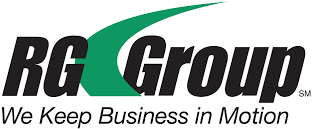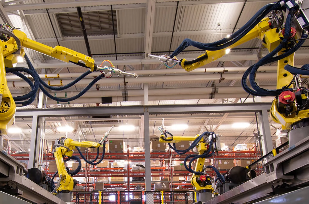In my last blog, I discussed how we at RG Group are investing in our people by implementing a formal Talent Review Process as part of our overall Talent Development Program. If you missed it, check it out here. During this collaborative effort, we are discussing the performance and potential of each employee at RG Group. How leaders evaluate performance is usually pretty clear; you have your key performance indicators (KPIs), SMART goals and various metrics. What is often more murky is how potential is evaluated. Performance is based on what you have done but potential is based on what you could do- feels a bit like fortune telling at times!
Before I get into how we evaluate potential, I first need to define what I mean by “high-potential”. Google says (what did people even do before Google??) potential is “having or showing the capacity to become or develop into something in the future”. For the Talent Review Process, we evaluate potential as the ability to move into a leadership or a more senior technical role within the company. RG Group is focused on providing trusted expertise so we need to continuously invest in the learning and development of our engineers, customer service, sales etc.
Potential is difficult to quantify and can be very subjective which leads to conflicting assessments depending on which leader is conducting the evaluation. One leader believes an employee has the potential to do more and the next leader may say no, I don’t think so. I have seen this challenge time and time again so I asked myself, how can I provide a framework for objectively evaluating the potential of each employee? What behaviors do high potentials demonstrate that indicates they have the ability to do more?
Our CEO provided a book called “Grit- the power and passion of perseverance” by Angela Duckworth and I love the concept. Angela describes the greatest indicator of success as not IQ like many people think, but a combination of perseverance and passion that she calls grit. I love this concept because I also believe that success can often be attributed to someone’s hard work; these are the people that put in the extra time, effort and embody the never-give-up, positive, attitude to keep going even when facing adversity or roadblocks.
Another term I read about and found interesting was the idea of being a “catalytic learner”. I am sure we have all met people that have all of the fancy certifications and degrees but are not able to effectively apply what they learned in the classroom setting in the workplace. Have you ever found yourself asking why someone that has attended multiple leadership classes, read leadership books and has a management degree is still a poor leader? They are probably not a catalytic learner. When someone is a catalytic learner, you see them learning, growing and improving with time and education.
I also found this great article published by Forbes which identifies 10 keys to identifying people with high potential. Number one on the list was Strategic perspective, direction and clarity. But what does that even mean? What really is strategic thinking? I found this definition of strategic thinking which summarizes the general theme I found while researching and I have used to guide our evaluation of this behavior:
Strategic thinking focuses on finding and developing unique opportunities to create value by enabling a provocative and creative dialogue among people who can affect a company’s direction”.
In other words, you can’t really think strategically without considering others. (Link to Article)
I could write pages on strategic thinking and perhaps I will in another blog (hint hint)! Essentially, people need to get out of their silos and collaborate with people outside of the departments to understand the big picture.
The other key areas we look at from that Forbes article include teamwork and collaboration. How well do they consider and work with others? Do they inspire and motivate others to achieve great results? Are they innovative and willing to change? Even further, do they champion or advocate for that change or do they sit back to complain while expecting others to lead the change? Do they have a passion for training and developing others? Do they communicate not just effectively (which is the minimum expectation) but powerfully? And lastly, do they have positive attitudes?
The evaluation of potential is an evolving process. These behaviors are not all inclusive for our evaluation process because foundation for any employee is that they live our Core Values. These Core Values include Honest, Integrity, Caring/Fairness, Openness, Quality Dedication, Promise Keeping and Personal Mastery.
So what do you think? Did we miss any important behaviors in evaluating potential?
Check out my blog next month when my topic will be more on strategic thinking and how you can build that skill.





